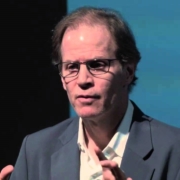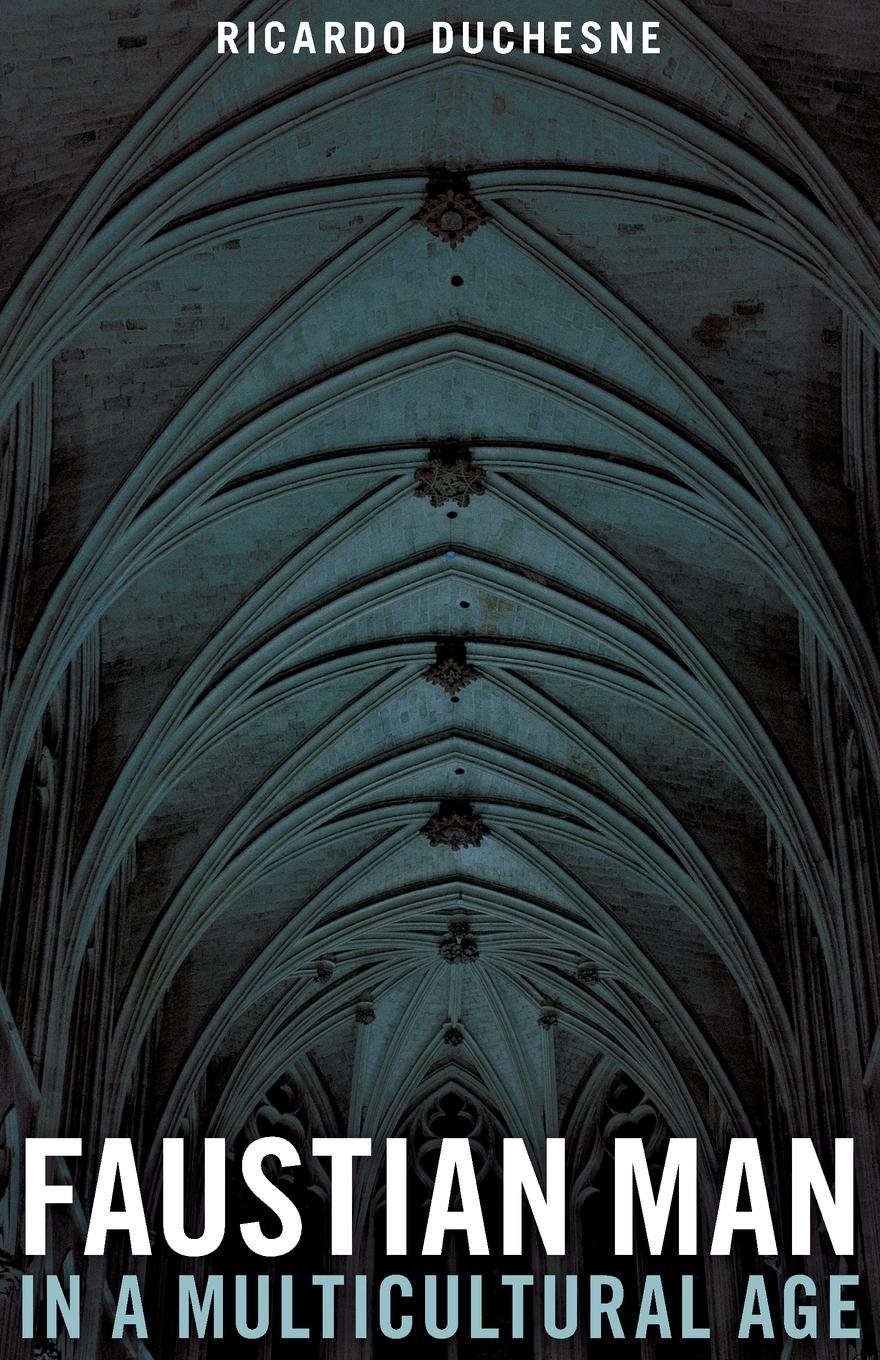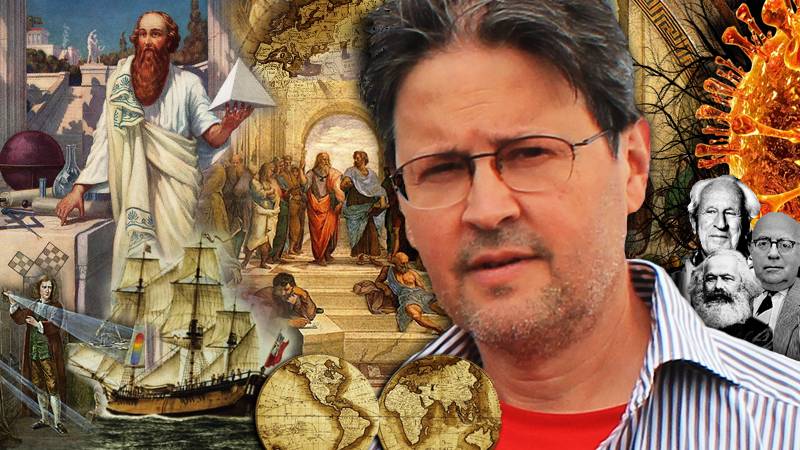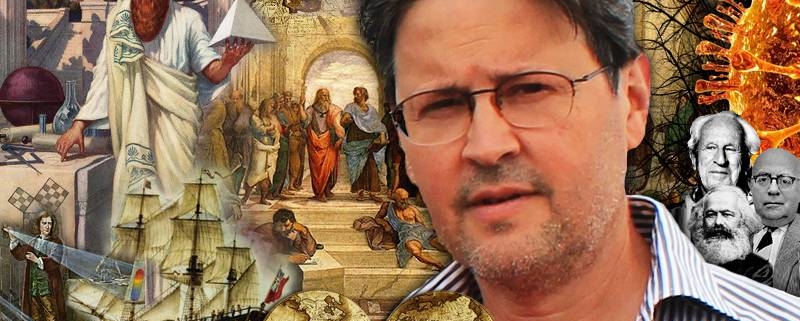Studying the Gentile: Fanciful Pseudoscience in the Service of Pathologizing the Covington Boys
/45 Comments/in Featured Articles, Jewish Academic Activism/by Andrew Joyce, Ph.D.“One person questioning the truth of the Holocaust is one too many.”
Karen Pollock, Holocaust Educational Trust, January 2019
In Studying the Jew (2006), Alan Steinweis’s slim, Harvard-published text on the scholarly study of Jews under the Third Reich, the author laments “the perversion of scholarship by politics and ideology” and its service in the goals of “exclusion and domination.” While some of the anecdotal material presented in the book is fascinating, especially its prosopographies of what one reviewer called the “clearly brilliant” German scholars who undertook such work, the overarching message of Studying the Jew is that one should, under no circumstances whatsoever, study the Jew. That Steinweis felt such a message was in any way necessary in 2006 is a testament to the same paranoia in which the fevered Jewish inability to let go of the past becomes the frantic injunction unto the Gentile to “Never Forget.” Steinweis’s limp appeals to contemporary relevancy aside, by 2006 the kind of patient and methodical Judenforschung produced by Édouard Drumont, Henry Ford, Hillaire Belloc, and the scholars of the 1930s, had indeed become a thing very much of the distant past — Kevin MacDonald’s remarkable 1990s trilogy being the exception that proves an otherwise solid rule. By the 1960s, Jews had effectively monopolized the study of their own history and sociology in the post-war, modern incarnation of “Jewish Studies,” and quickly followed a self-congratulating, navel-gazing, agenda-driven, victim-orientated trajectory in the same fashion as their later counterparts in Women’s Studies, Chicano Studies, and Black Studies. Serious critical study of the Jews vanished from academia and mainstream culture.
Curiously, however, around the same time that serious critical study of Jews vanished from campuses and newspapers, a new trend emerged: studying the Gentile. I was strongly reminded of this recently during the debacle surrounding the Covington Catholic High School trip to Washington D.C. The facts of this incident are now so well known that they need no further regurgitation here. It should suffice to mention that large sections of the media were incensed that the school’s students had enough self-respect to hold their ground against a group of ludicrous but abusive Black Israelites, as well as a Native American who apparently thought the best way to mediate the situation and reduce tension would be to bang his war drum and chant loudly mere inches from the palefaces. The aftermath was a true exercise in the media manipulation of anti-White hatred, something that seemed to reach a zenith when America’s most prominent African-American Zionist, and AIPAC house Negro, Bakari Sellers, heroically broke from stereotypes of ignorant Black thuggery to call for one of the White children to be punched in the face. Stunning and brave.
At the Guardian meanwhile, attention momentarily turned away from the beating of White children to the more sedate subject of brainwashing them. In an article titled “How should parents teach their kids about racism?,” the author, panicked by the children of Covington High, turns for advice to two academics working in the field of ethnicity perception among White children. Of course, both of these academics just happen to be Jewish. The first is Evan Apfelbaum, Boston University’s Jewish expert in the study of the psychology of the little goyim. The article states:
Evan Apfelbaum, an associate professor at Boston University’s Questrom School of Business focused on social psychology and diversity, agreed that it’s good to start teaching children about race when they’re young. “Having these tough, uncomfortable conversation at home in advance, in a structured setting, is one way to help prepare kids for facing these types of complex things in the real world,” he said. Parents can use such viral videos that demonstrate inappropriate behavior as an opportunity to have a conversation with their children about racism, Apfelbaum added. “When things go viral, there’s an opportunity for learning,” he said.
Unfortunately for Apfelbaum, the emergence of further footage from this particular event revealed that the opportunity for learning involved the knowledge that adult Black men are quite willing to scream “faggots” at White children, presumably because those children have the mysterious ability to speak in complete sentences. A further lesson was that elderly Native Americans are not full of profound wisdom uttered in the staccato prosody of so many film depictions, but are instead profoundly anti-social and fully prepared to shamelessly lie about school children in order to solicit media attention.
The second of the Guardian’s consulted experts was Dan Siegel, a truly ominous Jewish UCLA psychiatrist with a not-sinister-at-all interest in how the “remodeling” of the teenage brain can be interfered with in order to prevent in-group attachments:
The “remodeling” of the teenage brain into an adult brain entails four core changes: emotional sparks, social engagement, novelty-seeking and creative exploration — what Siegel calls “Essence”. The four changes represent an uptick in passion, drive to be a part of a group and a desire for new experiences that is normal for teenagers. These changes can be positive or negative, depending on how they’re fostered, Siegel said. The development also heightens what psychologists call “in-group, out-group distinction”, or the tendency to lump oneself in social groups, he added. When a person feels like their “in-group” is threatened by an “out-group” — people part of a group they don’t identify with — there’s a chance they will dehumanize the out-group. “Adolescents are equally prone to having this in-group-out-group distinction” as adults are, Siegel said. “Essence” exacerbates the distinction, and that’s what can be seen in the viral videos, he added. In these videos, there’s evidence of “emotion they don’t know how to control, collaboration where they give up morality to gain membership, novelty-seeking which drives them to do things that are really dangerous … and following ideals as they push against things that have them not think logically”, Siegel said.
This is probably one of the most fanciful pieces of Jewish psychological quackery I’ve ever read, and I’ve read a lot of it. Now that we have footage covering the entirety of the episode in D.C., it’s clear that the young men from Covington Catholic High School showed great restraint and emotional control in the face of provocation and abuse, and the “smirking” student can be seen on camera urging his (compliant) fellow students to maintain order and not engage with the Black Israelites or other provocateurs. Siegel, meanwhile, claims he sees evidence of “emotion they don’t know how to control, collaboration where they give up morality to gain membership.” This is just a Jewish intellectual activist refusing to look at the footage objectively, and thus presenting an entirely false picture in order to pathologize those he feels a pre-existing antagonism towards.
Siegel’s nonsense, like a lot of Jewish pseudo-science, would be laughable if it wasn’t so obviously malicious. Aside from his ‘Essence’ scam, Siegel operates a pro-diversity “mindfulness wheel of awareness” methodology designed to brainwash clients into abandoning any sense of ethnic identity. In an interview with Forbes, Siegel explains:
You want to expand your “circle of identity” so that within the phrase “like me” you include a lot of diversity. What I would say is the plane of possibility is accessed more when people integrate consciousness. People are too confined, so they are excessively differentiated and not accepting the value of other life forms including other humans that do not fit into that initial high plateau of identity. What has been fascinating about doing the wheel of awareness practice — and I think this is consistent with some of the research about reducing some of the implicit racial bias [editor’s note: a field rife with failure to replicate] with mindfulness practices— is when people access the hub, they’re gaining more access. They are more readily accessing the plane of possibility and in the plane, there is no racism. In the plane, there is this experience of reality that embraces the fluidity of identity. That is, “you” are made up of people who are not your racial background. You are people who don’t speak your same language. You are people who of different religions. It’s not just that they’re different and that is okay. It’s that you are both part of the same sea of potential or the plane of possibility. What has been beautiful about explaining this is that people get a feeling of relief that they can now basically be in a state of — and not to get too gooey — love and acceptance.

Dan Siegel: “You want to expand your “circle of identity” so that within the phrase “like me” you include a lot of diversity.”
A Conversation with Ricardo Duchesne, Part 3 of 3
/3 Comments/in Featured Articles, Western Civilization, Western Culture/by Gregoire Canlorbe
Grégoire Canlorbe: It is not uncommon to claim the self-assertive longing for “prestige,” “respect,” and “fame” is fully intelligible within the framework of the selfish-gene theory, according to which the individual is biologically designed to propagate his genes—and therefore, to pursue personal survival, reproduction, and kin solidarity. Despite the Indo-European warlord’s disdain for his own biological survival, and despite his heroism being recognized and praised by people who are not necessarily related to him genetically, do you still subscribe to the universal relevance of the selfish-gene framework?
Ricardo Duchesne: In Uniqueness I contrasted the aristocratic obsession with honor and respect to the universal instinct for survival, giving the impression that Indo-Europeans were somehow standing above the evolutionary pressures that all groups face in maximizing their chances for reproduction and survival. Kevin MacDonald correctly clarified, in his long review, that “prestige and honor among one’s fellows is in fact typically linked with material possessions and reproductive success. Like other psychological traits related to aggression and risk-taking, the pursuit of social prestige by heroic acts is a high risk/high reward behavior, where evidently the rewards sufficiently outweighed the risks over a prolonged period of evolutionary time.”[1]
Darwinian selective pressures are always at work. But this should not be taken to mean that human culture does not have its own internal dynamics, and that all our beliefs and behaviors are explainable in Darwinian terms. Evolutionary psychologists (not MacDonald) can be quite presumptuous in their fundamentalist belief that they can instruct sociologists, philosophers, and members of the humanities, about human nature and the ultimate origins and biological foundations of our cultural practices. They like to emphasize the cultural patterns, institutions, customs, and beliefs that occur universally across many cultures, as a demonstration that humans will only engage in cultural practices that are good candidates for evolutionary adaptations.
It is worth noticing, however, that the examples of cultural universals they offer — such as the universal presence of athletic sports, dancing, music, housing, funeral rites, language, greetings, courtship, calendars, division of labor, status differentiation, tool-making — are examples of basic cultural practices performed by everyday humans. They represent the lowest cultural denominator. They can’t account for the superlative achievements of Europeans in music, the fact that classical music is singularly European, in evolutionary terms. They can’t account for the fact that almost all the greatest thinkers are European, the architectural styles, the invention of sports, etc. Their inclination, rather, is to trivialize high culture and high achievements that are not easily fitted into an evolutionary scheme.
Why did Europe produce almost all the great scientists in history? Steven Pinker is not interested in these questions but concentrates on the universal traits of the human mind as “a neural computer, fitted by natural selection with combinatorial algorithms for causal and probabilistic reasoning about plants, animals, objects and people.”[2] How do we explain Europe’s superlative achievements in the arts? Pinker’s angle is that “the value of art is largely unrelated to aesthetics: a priceless masterpiece becomes worthless if found to be a forgery; soup cans and comic strips become high art when the art world says they are, and then command conspicuously wasteful prices.”[3]
They know that natural selection can only play a foundational role in understanding human culture and that “human culture itself,” in the words of another Darwinian hardliner, Daniel Dennett, “is a more fecund generator of brilliant innovations” than genetic endowment. This is why they came up with the concept of memes, which they think “can do justice to the humanities and sciences at the same time” by providing an explanation of cultural changes in terms of “new selective pressures” created by culture itself. They acknowledge that culture has evolved through cultural selection transmitted “perceptually, not genetically”[4]
Richard Dawkins defines the term meme “to refer to the ways of doing and making things that spread through cultures.” Dennett realizes that many selected memes have not enhanced human fitness, and that in fact “many of our most cherished memes are demonstrably fitness-reducing in the biological sense,” such as postponing procreation to get a very expensive college education. Once we meet our survival needs, humans “think there are more important things in life than out-reproducing their conspecifics.” “We are the only species that has discovered other things to die for (and to kill for): freedom, democracy, truth, communism, Roman Catholicism, Islam, and many other meme complexes (memes made up of memes).”[5] We are the only species that articulates reasons to account for why we do things and the only species that attempts to persuade others why those reasons are good, often in the name of goals that cannot be accounted for in straightforward evolutionary terms. They have also argued that human cultural activity has changed the environments they respond to, creating “cognitive niches” or “cultural niches” with very different selective pressures. Pinker believes that humans evolved sufficient genetic capacities to be able to select the best memes and discard culturally inefficient or dysfunctional memes. Read more
A Conversation with Ricardo Duchesne, Part 2 of 3
/5 Comments/in Featured Articles, Western Civilization, Western Culture/by Gregoire Canlorbe
Grégoire Canlorbe: Western civilization, originating from the Indo-European heroic ethos, turned out to be both the most creative and Faustian civilization and the most war-ridden and war-dominated one. Islamic civilization has been equally militaristic and expansionist; yet it quickly became frozen and hostile towards innovation and individual genius—despite the fact that praising Muhammad’s heroic lifetime has permeated Islamic societies to this day. How do you explain this duality?
Ricardo Duchesne: Almost all cultures have been expansionist, if not warlike, in one form or another. This universal trait does not make a people Faustian. Even highly expansionist peoples such as the Assyrians, Aztecs, Huns, Turks, or Mongols, were not Faustian. Oswald Spengler was aware that medieval and modern Europeans were not uniquely militaristic and imperialistic. Spengler spoke of the “morphological relationship that inwardly binds together the expression-forms of all branches of Culture.” For him, such things as Rococo art, differential calculus, the Crusades and the Spanish conquest of the Americas, were all expressions of the same soul. He saw something Faustian about all the great men of Europe, both in reality and in fiction: in Hamlet, Richard III, Gauss, Newton, Nicolas Cusanus, Don Quixote, Goethe’s Werther, Gregory VII, Michelangelo, Paracelsus, Dante, Descartes, Don Juan, Bach, Wagner’s Parsifal, Haydn, Leibniz’s Monads, Giordano Bruno, Frederick the Great, Ibsen’s Hedda Gabler. For Spengler, Christianity, too, became a thoroughly Faustian moral ethic. “It was not Christianity that transformed Faustian man, but Faustian man who transformed Christianity —and he not only made it a new religion but also gave it a new moral direction”: will-to-power in ethics. This “Faustian-Christian morale” produced the incredible variety of personalities we witness in Europe, such as Luther, Loyola, Pascal, St. Theresa, “giant-men like Henry the Lion and Gregory VII, … the men of the Renaissance, of the struggle of the two Roses, of the Huguenot Wars, the Spanish Conquistadores, … Napoleon, Bismarck, Rhodes.”
By contrast, other than the Islamic efflorescence between 700 and 1200, which consisted primarily in commentaries on Aristotle, preserving some contributions from Persia and the Greco-Roman world, the Islamic world barely produced any truly creative personalities. Spengler attributed this to the “the Magian Soul” of Arabic-Muslim culture; in Islam “the civil and the ecclesiastical are identical.” This identification means that the world of man is subordinate to the dictates of Islam, everyone is essentially a believer or a non-believer, a member of the “We” of Islam or an outcast standing alone. There is no “I” in Islam, no room for personalities to affirm their “self-asserting egos” as we find in Christianity. Faustian Christianity “presupposes the strong and free will that can overcome itself.”
It is difficult to sum up this contrast, but perhaps this passage may do for this interview: “Whereas the Faustian man is an ‘I’ that in the last resort draws its own conclusions about the Infinite, … the Magian man, with his spiritual kind of being, is only a part of a pneumatic ‘We’ that, descending from above, is one and the same in all believers. As body and soul he belongs not to himself alone, but something else, something alien and higher, dwells in him, making him with all his glimpses and convictions just a member of a consensus which, as the emanation of God, excludes error, but excludes also all possibility of the self-asserting Ego. Truth is for him something other than for us. All our epistemological methods, resting upon the individual judgment, are for him madness and infatuation, and its scientific results a work of the Evil One, who has confused and deceived the spirit as to its true dispositions and purposes.”[1]
Once we understand the “morphological” unity of culture, we can see that Islam has not been “equally militaristic and expansionist.” There is a beautiful creativity in European expansionism that is lacking in all other cultures. Europeans were far more expansive, and successfully so: by 1800 they controlled 35% of the land surface of the globe, increasing this control to 85% by 1914. Almost every single military innovation in weapons, strategy, and organization, from ancient Greek times to the present, was European. There is no comparison. Read more
A conversation with Ricardo Duchesne, Part 1 of 3
/10 Comments/in Featured Articles, Western Civilization, Western Culture/by Gregoire Canlorbe
Editor’s note: Prof. Ricardo Duchesne will be the featured guest on the monthly video show promoting TOQ with James Edwards and me on Monday, February 4—details to come. In addition to his contributions to TOQ, Dr. Duchesne has authored several books, including The Uniqueness of Western Civilization, Faustian Man in a Multicultural Age, and Canada In Decay: Mass Immigration, Diversity, and the Ethnocide of Euro-Canadians.
Ricardo Duchesne is a Canadian historical sociologist whose main research interests notably include the Indo-European aristocratic-warlike and individualist ethos, the Faustian mentality and the creativeness of Western civilization from ancient Greek times to the present, and the pernicious effects of the multicultural and multiracial ideal on modern Western society.
Grégoire Canlorbe: In your eyes, the European civilization of the White man has been systemically downsized by contemporary world historians—to name but a few, Patrick O’Brien, Sebastian Conrad, or Ian Morris. Could you develop?
Ricardo Duchesne: At this point in time, the downplaying of European civilization goes well beyond the observations I made in The Uniqueness of Western Civilization (2011). The globalist establishment is no longer satisfied with the replacement of Western Civ courses, which were part of the standard curriculum in North America throughout much of the twentieth century, with Multicultural World History surveys that emphasize “reciprocal connections within the globe.” The academic establishment is no longer satisfied instructing students that European achievements can only be understood in connection with the rest of the world’s cultures, that Muslims were key creators of the West no less than Christians, that the Scientific Revolution, the Enlightenment, and the Industrial Revolution, were world historical affairs, that Europe only managed to industrialize thanks to the resources and hard labor of Africans and Aboriginals. That is no longer enough, they are now insisting, as I indicated in my second book, Faustian Man in a Multicultural Age (2017), that Europeans don’t have a distinctive identity because they have been mixing racially for thousands of years as a result of migratory movements. They are forcing their students to equate the current state-sponsored immigration movements from the Third World, purposely aimed at diversifying all White nations, with internal European migrations that occurred over the course of many centuries. They are trying to strip Europeans of any sense of ethnic identity, by making them believe that the race-mixing globalists are incessantly promoting today is a natural continuation of migratory movements thousands of years ago.
Rather that truthfully teaching students that the genetic makeup of Europeans, before diversity was imposed a few decades ago, remained very stable for most of their history, with next to zero genetic additions from Africans and Asians, they are indoctrinating them to believe that African/Asian-looking peoples were the original migrant-inhabitants of Europe. They are saying that Europeans were not indigenous to Europe, that this continent was the creation of waves of immigrants from outside Europe. They are extending the same false argument they have been making about the settler nations of America, Canada, and Australia — “Nations of Immigrants” — to all White nations. Yet, this argument does not even hold for these settler nations. As I argued in my best-selling book, Canada in Decay: Mass Immigration, Diversity and the Ethnocide of Euro-Canadians (2017), Canada was not a nation of immigrants but a nation built from the ground up by settlers and indigenous Quebecois, Acadians, and Anglo Loyalists. The same goes for America, Australia, and New Zealand; they were founded by White settlers who created a uniquely indigenous culture in these homelands.
Let it be said that these arguments are not being made by world historians alone, or by typically crazed academics in some half-baked field — what we now identify as “Grievance Studies.” What is so disconcerting, as I argued in “Deceptive Use of Scientific Data to Promote Ethnocide of Europeans,” is that academics in the natural sciences, population geneticists, archaeologists, paleogeneticists, and evolutionary biologists, are deceptively interpreting their otherwise objectively gathered findings (that there were intra-European migratory movements thousands of years ago) as if these movements consisted of non-Whites from Asia and Africa. They are arguing that these movements are a demonstration that there is no such thing as a uniquely German, a uniquely Norwegian, Polish, Swedish, or British people, because “all Europeans are already a mishmash of repeated ancient migrations” from non-European lands. But this is not true; what has been really documented is that there was some degree of intra-European racial mixing over the course of many centuries of migrations and invasions. It has also been documented that there was a “massive migratory movement” from the “Pontic-Steppes”, but these migrants were none other than the Indo-Europeans, once known as “Aryans”, and they did not come from “Asia” since the Pontic Steppes are part of the continent of Europe, and these migrants were White. The only migrants who came from outside Europe were the Anatolian farmers who started colonizing southern Europe about 8800 years ago, who did have considerable genetic impact on Spain, Italy, and Greece. Read more
Perceptions of Jewish History Drive the War of the Hostile Elite Against the Trump Presidency
/21 Comments/in Featured Articles, Jewish Support for Multiculturalism, Jews as a Hostile Elite/by Kevin MacDonaldI begin with a thumbnail sketch of Jewish perceptions of their own history as a prologue to thinking about why a long-term goal of the organized Jewish community has been to make alliances with other groups with grievances against the traditional American nation. Jewish perceptions of their own history reflect traditional Jewish fear and loathing of outgroups with power, particularly given their perceptions of their “lachrymose history” among Europeans as nothing but a vale of tears.
This lachrymose view has major implications for understanding contemporary Jewish political behavior in the Diaspora. It proposes that, beginning with an unfortunate theological belief (that Jews killed God), Jews have been passive, innocent victims of marauding non-Jews. The lesson that Jews learned from the Middle Ages carries down to today: [According to Norman Podhoretz,” the Jews
“emerged from the Middle Ages knowing for a certainty that — individual exceptions duly noted — the worst enemy they had in the world was Christianity: the churches in which it was embodied — whether Roman Catholic or Russian Orthodox or Protestant — and the people who prayed in and were shaped by them. It was a knowledge that Jewish experience in the ages to come would do very little, if indeed anything at all, to help future generations to forget” (Review of Norman Podhoretz’s Why Are Jews Liberals?, p. 29).
These perceptions are fundamental to Jewish education and to Jewish identity. Jews therefore—far more than non-Jewish Europeans—have an overwhelming sense of their own history. From far left to the neoconservative right, Jews socialized in the Jewish community imbibe a history of what they see as vicious persecution of blameless Jews in the West going back even prior to Christianity—to the Roman destruction of the Second Temple in 70 A.D.
Within this worldview, the Middle Ages were a period of completely unjustified expulsions from many areas on Western Europe, motivated not at all by Jewish behavior but by vicious, fundamentally anti-Semitic Christian theology. The Enlightenment resulted in “Jewish emancipation” in the sense that the paradigm had shifted from a corporate Christendom with its anti-Jewish theology to an individualist model of society where each citizen was to be stripped of group allegiances.
Jews were welcomed into these newly reconstructed Western societies, but the tensions remained. Jews were now accused of remaining Jews in societies of individualists—of remaining a “state within a state,” failing to shed their ethnic identities, and continuing to engage in ethnic networking, not only in business and professional relationships, but also establishing organizations in the West dedicated to helping Jews in foreign lands, at times against the perceived interests of the nations they were residing in. Read more
The Wall in a Nutshell: It’s About White Racial Consciousness and the “Browning of America”
/50 Comments/in Featured Articles, White Racial Consciousness and Advocacy/by Richard McCulloch
Of all things Trump, the most defining and distinguishing is his advocacy of, and identification with, a wall to curb illegal immigration across our southern border. It was the signature issue in the announcement of his candidacy, an issue no other major candidate would have dared to advocate, an issue that catapulted him into an immediate lead in the polls, and an issue which gained him the immediate and unprecedentedly vehement and bitter opposition and hatred of the “left-wing” media (even greater than their hatred of Nixon, with endemic comparisons to Hitler) and all the other branches of the Anti-White Coalition that dominates the political, corporate, academic, media and cultural establishment.1
Despite the dissimulating and misdirecting rhetoric to the contrary, chiefly from establishment Republican politicians, operatives and “strategists” attempting to rationalize their support for the wall by any means other than race, the wall is widely — and correctly — seen as very much about race, as part of the larger issue of mass non-White immigration and the displacement of Whites as the majority population group and their dispossession and replacement by non-Whites. So it is not surprising that its support and opposition are sharply divided on racial lines. Non-Whites (including semi-European and non-European Caucasians) know that the wall is about race and so they overwhelmingly oppose it. Mass support for the wall is limited to Whites, but because Whites are less racially conscious and because they are less motivated by their racial interests — and therefore more racially divided on political lines — than non-Whites, they support it by only a slight majority.2
While the debate over the wall has been exclusively defined in terms of secondary issues by its proponents, carefully evading and even denying the primary racial issue, its more radical opponents have been honest (and correct) to express their opposition to it racially, defining it as a racist (i.e., pro-White) and therefore immoral means to slow the racial transformation of the country from White to non-White now openly referred to, celebrated and advocated as the “browning of America.” The more moderate opponents of the wall, like its proponents, prefer to dissimulate and evade the racial issue by justifying their opposition in terms of secondary concerns, such as its cost (negligible compared to the expenses associated with illegal immigration) or its supposed ineffectiveness, with the strength of their opposition being the most accurate indicator of how effective they really fear it would be. But for both sides the wall is not really about the money. It’s about the racial future of the country. Read more










